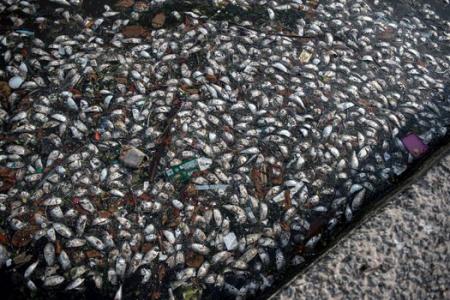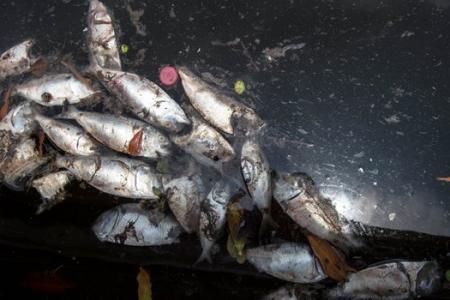Dead fish in Rio Olympic bay venue baffle scientists
Thousands of dead fish have begun mysteriously washing up in the polluted Rio bay that will host the 2016 Olympics sailing events.
And experts are at a loss to explain why this is happening.
Guanabara Bay has already been the subject of much concern among sailors who are competing in Rio, no thanks to the human sewage that gets pumped into its waters.
The International Olympic Committee (IOC) expressed confidence that Guanabara will be okay by the time the games get underway.
Fishy fallout
But with the Olympics less than two years away, the recent fishy fatalities - and the foul stench of their rotting carcasses - are attracting further scrutiny.
Though baffled, scientists say there is no evidence to suggest that pollution is the cause.
“Tests showed that this is not a matter of chemical or toxic water pollution,” - Rio do Janeiro State University oceanographer David Zee told AFP.
The foul odour is unwelcome on peaceful Paqueta Island, where cars are banned and the 4,500-strong population get around on horseback or bicycles.
To date, a municipal company has removed 20 tonnes of dead sabalo fish (from the Clupeidae family of herrings and sardines) as well as four dead sea turtles.
Leandro Daemon of the National Institute for the Environment (INEA) agreed that water testing had not identified any toxic chemicals or any unusual change in the water’s pH (potential of hydrogen), salinity or oxygen.
But not everyone is so confident.
Worried fishermen and islanders are pointing the finger at state giant Petrobras' petrochemical activities.

A Brazilian Petrobras oil facility is seen at Guanabara bay in Rio de Janeiro. Photo: AFP
The authorities tell us nothing, we are afraid, we do not bathe in the sea any more and do not buy fish here.” - said Vilma Leocadio of the Paqueta citizens’ association. “
Five fish were sen to the Federal University of Rio de Janeiro’s biology department for analysis on Tuesday.
Results will be announced in a week.
Source: AFP
Get The New Paper on your phone with the free TNP app. Download from the Apple App Store or Google Play Store now



